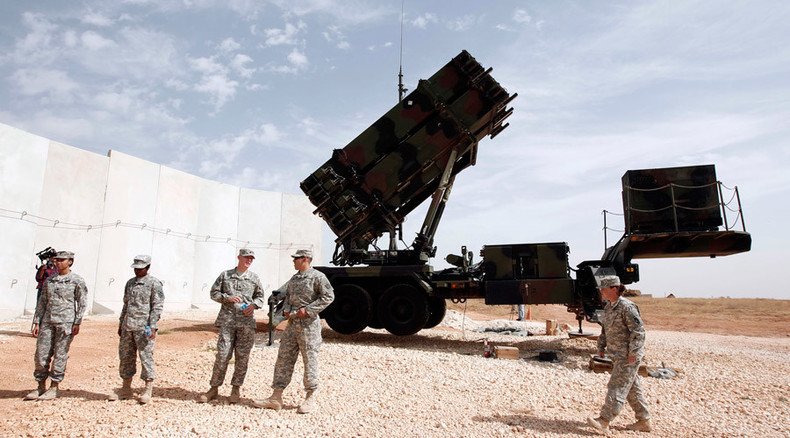US to pull Patriot anti-air missiles from Turkey

The US has followed in Germany’s footsteps, announcing that it will not be renewing its Patriot defense system in Turkey once it expires in October. The anti-air missile units will be shipped home for upgrades.
The information was released in a joint statement by Washington and Ankara.
“The United States has informed the Turkish government that the US deployment of Patriot air and missile defense units in Turkey which expires in October will not be renewed beyond the end of the current rotation,” said the message posted on the US Embassy in Turkey’s website.
The statement added that the units will be sent back to the US to be upgraded. “They will be redeployed to the United States for critical modernization upgrades that will ensure the US missile defense force remains capable of countering evolving global threats and protecting Allies and partners – including Turkey. This decision follows a US review of global missile defense posture.”
The decision was made a day after fellow NATO member Germany announced the withdrawal of its own missile defense systems from Turkey.
Germany to withdraw its anti-air missiles from Turkey http://t.co/R33BXIsjrSpic.twitter.com/wCrOSeALgo
— RT (@RT_com) August 16, 2015Germany cited a “low ballistic missile threat,” as well as the “high costs of the mission,” as reasons for the pull out.
The NATO allies deployed the air-defense systems in Turkey in 2013 after Ankara requested them to counter potential attacks from Syrian President Bashar Assad’s forces in Syria.
The US has stressed that Turkey’s safety is still a concern, and it is ready to redeploy the defense systems if need be. “The United States and Turkey are consulting on possible other steps that we can take bilaterally to reinforce Turkey’s security.”
The West and Turkey have disagreed on the purpose and extent of military cooperation in the region. Turkey wants efforts to focus on toppling the Assad regime in Damascus, while the West’s priority is fighting the increasing threat presented by Islamic State (IS, previously ISIS/ISIL).
READ MORE: US Patriot missile battery crews arrive in Turkey
At the same time, the US has been attempting to train “moderate” rebels in Syria, who are currently fighting both Assad and jihadist groups like IS. With Washington recently stepping up its “Assad-must-go” rhetoric, Russian Foreign Minister Sergey Lavrov warned that, in reality, the only groups that would potentially replace the Syrian government are made up of Islamic terrorists.
“I would not want any powerful state involved in attempts to solve the Syrian crisis to believe that Assad issue may be solved militarily, because the only way of such a military solution is the seizure of power [in Syria] by Islamic State and other terrorists,” Lavrov said at the beginning of August. “I don’t think anybody wants that.”
Ankara, once an ally of Syria, has become a vocal supporter of the opposition forces fighting to oust Assad. It has even been accused of supporting jihadi fighters coming into Turkey from other countries around the world in hopes of crossing into Syria to join IS or other rebel groups. Ankara has denied these allegations.
Meanwhile, Turkey has intensified its attacks on Kurdistan Workers’ Party (PKK) militants based in northern Iraq, blaming the group for a series of killings targeting police officers and soldiers.
Kurdish insurgents are demanding an independent Kurdistan or greater autonomy. PKK was founded in 1978 and has been clashing with Turkish security forces ever since. The conflict escalated at the end of July after dozens of police and military personnel were killed in Turkey. Ankara blamed the Kurdish militant group for the attacks.
However, it is unclear whether the US’ decision to withdraw the defense missile system had anything to do with this escalation.
A senior Pentagon official has questioned Turkey’s commitment to the anti-IS coalition, suspecting that Ankara is using its position to move against the Kurds, according to the Wall Street Journal.
“It’s clear that ISIL was a hook. Turkey wanted to move against the PKK, but it needed a hook,” the US newspaper quoted a military official as saying.












